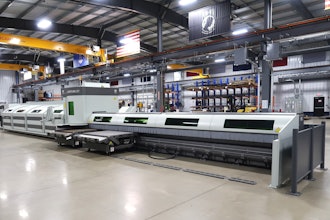President-elect Donald Trump focused his campaign on a vow to restore the country's manufacturing economy, and he was quick to take credit for decisions by Ford and Carrier to remain in the U.S. in the wake of his election.
Dozens of economists, however, told The Wall Street Journal early this month that even modest increases in U.S. manufacturing jobs won't be enough to restore the millions lost in recent decades.
The survey, which included a mix of 62 academic, business and financial economists, predicted that the U.S. would add 50,000 manufacturing jobs by the end of 2019 — a pace that would fall far short of the momentum needed to move from the current 12.3 million manufacturing workforce back to the U.S. peak of 20 million, which was reached in 1979.
Over the subsequent 27 years, the Journal said, five separate recessions eroded millions of manufacturing jobs, and recovery periods did not generate enough growth to bring them back.
Trump blamed trade deals — and, by extension, outsourcing — for the trend, but the bulk of the economists in the survey instead blamed better technology that allows companies to produce more goods with much smaller workforces.
"Manufacturing employment is now back to 1941 levels and falling,” Parsec Financial economist James Smith told the Journal. "This is a global trend and not at all specific to the U.S."
Trump's vow to overhaul the nation's trade policies, meanwhile, could make things more difficult. The survey identified trade deterioration as the biggest current risk to the economy.






















